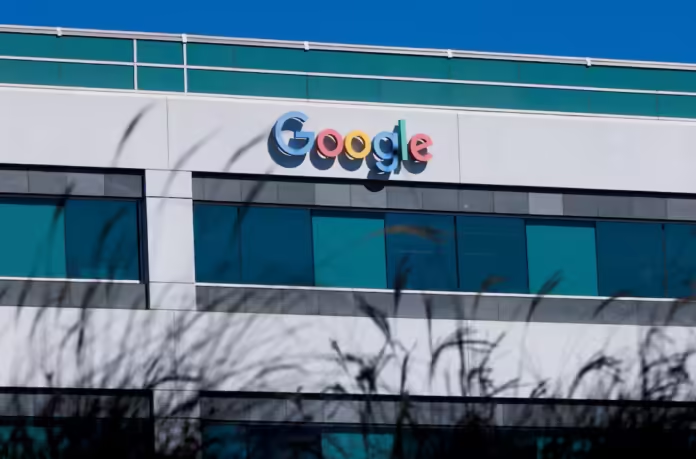As Donald Trump eyes a potential return to the White House, experts predict that his administration could bring notable shifts in antitrust policy, particularly with regard to major technology firms. Analysts believe that Trump may step back from some aggressive antitrust measures pursued under President Joe Biden, potentially halting attempts to break up companies like Alphabet’s Google over its dominance in online search. Trump’s approach, however, is expected to maintain some degree of scrutiny over Big Tech, building on cases initiated during his previous term, though with a different enforcement strategy.
Trump’s return to the antitrust stage comes as he recently expressed skepticism about breaking up Google, which has been under legal scrutiny for its dominance in the digital economy. During an event in Chicago in October, Trump questioned the consequences of breaking up the tech giant, suggesting that instead of a complete breakup, measures could be implemented to ensure fairer practices. “If you do that, are you going to destroy the company? What you can do without breaking it up is make sure it’s more fair,” he remarked. This statement hints at a potentially softer stance on Big Tech breakups compared to the Biden administration’s more aggressive posture.
Currently, the U.S. Department of Justice (DOJ) is engaged in two high-stakes antimonopoly cases against Google. One of these cases targets its dominance in online search, while the other focuses on its control over advertising technology. The DOJ’s proposed remedies in the search case include forcing Google to divest portions of its business, such as the Chrome Web browser, and stopping agreements that make Google the default search engine on devices like Apple’s iPhone. However, the resolution of these cases is far from imminent, with the trial to determine remedies scheduled for April 2025 and a final ruling likely around August. This timeline allows ample room for Trump to influence the DOJ’s course on the matter if he returns to office.
William Kovacic, a law professor at George Washington University and former chair of the Federal Trade Commission (FTC) under President George W. Bush, stated that Trump would hold significant sway over the DOJ’s decisions in these cases. “He is certainly in the position to control the DOJ’s disposition of the remedies phase,” Kovacic noted, indicating that Trump’s leadership could mean a shift away from some of the more drastic measures proposed under Biden’s tenure.
Beyond Big Tech cases, Trump’s anticipated approach to antitrust enforcement could bring relief to dealmakers who have faced friction under the Biden administration. During Biden’s term, there was a distinct reluctance to settle with merging companies. Previously, companies with competition concerns could often address issues raised by regulatory agencies by agreeing to divest certain parts of their business. Under Biden, this leeway has been considerably restricted. However, legal experts suggest that Trump could revert to a more flexible stance on mergers and acquisitions, one that favors negotiated settlements over outright rejections.
Jon Dubrow, a partner at McDermott Will & Emery, explained that Trump would likely rescind merger review guidelines crafted under Biden. “The 2023 merger guidelines were very hostile to mergers and acquisitions,” Dubrow stated, echoing a widely held view on Wall Street. If Trump overturns these guidelines, it could mark a return to a more traditional regulatory environment that encourages business consolidation, a trend that was prevalent before the Biden administration’s tougher stance on corporate mergers.
The FTC, under its current chair Lina Khan, has also been a focal point of Biden’s antitrust agenda, particularly in its efforts to curb noncompete clauses in employer-employee contracts. The FTC under Khan’s leadership has actively sought to ban most noncompete agreements, a move that has faced legal challenges, including a lawsuit brought by the U.S. Chamber of Commerce. Nearly 20% of U.S. workers, or about 30 million people, are currently under noncompete agreements, according to the FTC. However, if Trump were to replace Khan with an appointee aligned with his agenda, the FTC’s push for a broad ban on noncompetes could be at risk, especially if the commission swings to a Republican majority.
Khan’s tenure has been marked by a rigorous antitrust strategy aimed at tackling societal harm from unchecked corporate consolidation. She has gained recognition from both Democrats and Republicans, including Vice President-elect JD Vance, for addressing corporate power. Nevertheless, her approach has drawn criticism from segments of the business and legal community, where some view her initiatives as overly aggressive. Replacing Khan with a Trump-appointed FTC chair could shift the agency’s focus away from challenging corporate mergers and anti-competitive practices toward a less confrontational approach, mirroring Trump’s broader outlook on antitrust.
Despite potential policy changes, Trump is not anticipated to drastically reduce antitrust enforcement. According to an analysis by the Sheppard Mullin law firm, Trump’s first term saw a comparable number of merger cases filed as in the initial years of the Biden administration. While Trump may take a less aggressive approach, especially in cases involving major corporations, he is expected to maintain a level of oversight and enforcement that reflects his past stance on corporate regulation.
In conclusion, if Donald Trump returns to the White House, the United States’ antitrust landscape is likely to see a marked shift in direction. Big Tech firms such as Google and companies facing merger scrutiny may find regulatory relief in Trump’s more cautious stance on corporate breakups and mergers. Yet Trump is expected to preserve antitrust oversight to an extent, maintaining pressure on corporations while avoiding sweeping measures that disrupt major companies. As his views on enforcement have evolved, Trump’s approach to antitrust is likely to balance between promoting corporate fairness and reducing what he views as regulatory overreach. In a post-Biden era, this shift could mark a return to policies more favorable to corporate America while still keeping a watchful eye on the tech and merger landscapes.


